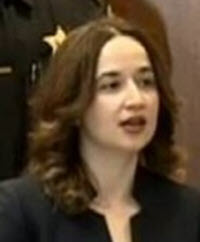Abstract
excerpted from: Jennifer Sellitti, Breaking Blue: Challenging Police Officer Credibility at Motions to Suppress, 41-DEC Champion (December, 2017) (17 Footnotes)(Full Article Not Available)
 Every time a police officer puts his left hand on the Bible, raises his right hand in the air, and swears to tell the truth and nothing but the truth, he is inviting the factfinder to judge his credibility. For defense attorneys operating in a world in which "blue lives" matter and police officers are revered as inherently trustworthy, this creates an uphill battle. That hill is steeper when it comes to motions to suppress evidence seized in searches with or without a warrant because it is the judge alone who decides whether the officer is telling the truth.
Every time a police officer puts his left hand on the Bible, raises his right hand in the air, and swears to tell the truth and nothing but the truth, he is inviting the factfinder to judge his credibility. For defense attorneys operating in a world in which "blue lives" matter and police officers are revered as inherently trustworthy, this creates an uphill battle. That hill is steeper when it comes to motions to suppress evidence seized in searches with or without a warrant because it is the judge alone who decides whether the officer is telling the truth.
The law will not save the day. Defense attorneys like to think that standards such as "probable cause" and "reasonable suspicion" are stalwart legal principles with clear definitions, but the case law tells a different story. These standards have been described by State and Federal courts as "flexible" "fluid" and "case dependent."
Current events will not save the day. Despite the constant flow of news stories about police corruption, no judge wants to call an individual police officer a liar.
The defense case will not save the day. Judges look at cases through their lenses rather than through the lens of the accused. This extends to the court's view of defense witnesses; it is rare that calling a witness to directly contradict a police officer proves a winning strategy.
When all is said and done, criminal motion practice boils down to the credibility of the officer making the assertion and to the ability of criminal defense attorneys to strip away the presumption of trustworthiness that comes with a badge and a gun. And so, like Sisyphus, every time defense attorneys file a motion to suppress they start pushing an enormous boulder up that steep hill.
To break the cycle, defense lawyers must embrace the reality that theirs is not a problem of law. It is a problem of fact. This is not to suggest that advocates should not vigorously pursue Fourth Amendment challenges. For trial lawyers, however, after a ruling comes down they are stuck with it until an appellate court reverses it. This concept is cold comfort to the client. What trial lawyers can do in the moment for their clients is to make better credibility arguments that may succeed even when the law, the system, and the factfinder's worldview are against them.


